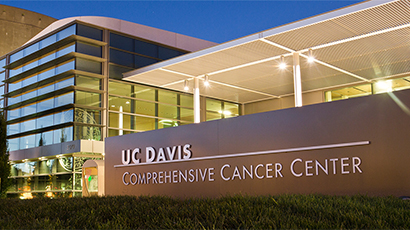UC Davis Comprehensive Cancer Center is launching a new Tobacco Cessation Policy Research Center. The Tobacco-Related Disease Research Program, a state research agency administered by the UC Office of the President, has authorized $3.7 million in funding to operate the center for four years.
Elisa Tong, a nationally recognized tobacco researcher and an internist at UC Davis Health, will serve as the center’s director. Tong is medical director of UC Davis Comprehensive Cancer Center Stop Tobacco Program and principal investigator for CA Quits, which works with the state’s Medi-Cal managed care plans and providers to improve tobacco treatment delivery.

“The mission of our center is to build capacity for health care access, promote excellence in health care delivery, facilitate health care and community engagement, and achieve equity in health plan coverage,” Tong said. “Our center will generate evidence for policy adoption and implementation, collaborate with community and policy stakeholders and develop the pipeline of researchers to sustain the mission.”
Center partners include the American Cancer Society Cancer Action Network (ACS CAN), UCLA Health, and UC Center Sacramento, a UC systemwide program for public policy teaching, research, and public service. Both the cancer center and ACS CAN have a history of working together throughout Northern and Central California. Both are members of the Greater Sacramento Smoke & Tobacco-Free Coalition, an important foundation of community collaboration.
Advancing tobacco cessation policy research
Four “rapid response” policy projects will address key areas for current and future legislative policies for tobacco cessation:
- Health care access. Community pharmacies are important points of health care access, and California pharmacists can furnish nicotine replacement therapy without a prescription. This study will examine barriers to implementing Assembly Bill (AB) 1114. Enacted in 2016, the law allows Medi-Cal plans to reimburse community pharmacists affiliated with Community Pharmacy Enhanced Services Network for tobacco counseling services.
- Health care delivery. People with substance use disorders have high rates of tobacco use, but people in the facilities don’t always get the help they need to quit. This study will examine barriers to implementing AB 541 (enacted in 2021) for substance use disorder facilities to conduct tobacco status assessments and treatments.
- Health care engagement. California’s Senate Bill 793 (effective January 2023) bans the retail sale of most flavored tobacco products and is an opportunity for people to quit menthol and other flavors in e-cigarettes. This study will examine a strategy to engage health care providers on local policy adoption and implementation.
- Health care plan reform. Comprehensive tobacco treatment coverage is in place for Medi-Cal but not other publicly covered health plans, such as those for state employees, with two failed bill attempts. Research can help define health economic scenarios for policy decision-makers.
“Study findings will support efforts to expand into subsequent studies or generate new policy efforts,” Tong said. “The long-term impact is to improve population-based cessation outcomes that will help fulfill California’s aspirations of an endgame to end the commercial tobacco epidemic and help save lives.”






